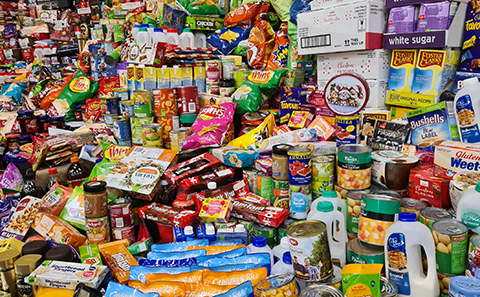British public back ban on selling junk foods at checkouts research reveals

A ban on selling junk foods from store entrances, aisle ends and checkouts should continue after a new study found the plans were largely backed by the British public and food industry.
Legislation to restrict the placement of products high in fat, salt and sugar (HFSS) was introduced by the UK government in October last year as part of efforts to tackle obesity.
More than 100 people across the UK’s food supply chain were interviewed for the investigation, which was led by researchers from University of Southampton and City, University of London, and funded by the National Institute for Health and Care Research (NIHR).
Investigation lead Professor Christina Vogel, Deputy Director of the Centre for Food Policy, City, University of London, labelled the plans a “world leading” move that could shift the UK away from unhealthy and unsustainable diets, if adopted alongside other anti-obesity legislations.
She said: “This novel food policy marks important changes that can help create healthier shopping environments for customers. But it is essential to monitor how well it is being implemented across all store types and identify what more is needed for it to have maximum benefit for everyone.”
The study, published in the journal BMC Medicine, found that retailers, manufacturers, consumers, enforcement officers and health representatives across England’s food system felt the legislation is a good first step towards tackling obesity.
UK Government Health Minister Neil O’Brien said the research shows consumers, retailers, and manufacturers back what the government is doing on tackling obesity.
He added: “Restrictions on the placement of unhealthy foods stop shops from using children and ‘pester power’ to hassle adults into buying things. But they also reduce children’s calorie consumption, driving down obesity, and could save the NHS over £4 billion. These reforms are ensuring healthier food is more widely available, easily accessible, and more visible in our shops – helping everyone to live healthier lives.”
The results did reveal concerns about the exemption of certain foods and businesses, the high cost of healthy products, and the possibility that some businesses may exploit loopholes to continue marketing nutritionally-poor products – which could weaken the intended effects of the legislation.
Dr Sarah Muir, from the MRC Lifecourse Epidemiology Centre at the University of Southampton, said: “The support from people across our food system demonstrates this government legislation is important and should be continued. To ensure businesses across the country can adhere to the new rules, all retailers and manufacturers need easy access to a tool that accurately measures the fat, salt and sugar content and other nutrients in products.”
The study also identified that smaller businesses need extra support to offer healthier foods while remaining financially secure. Local authorities who are working with businesses in their area to support compliance also need ring-fenced resources because their teams are already stretched.
Preeti Dhuria, also from the MRC Lifecourse Epidemiology Centre at the University of Southampton, added: “To achieve meaningful dietary change, the people we spoke to noted that this legislation will need to be refined over time to close loopholes, and that a long-term strategy targeting the pricing, marketing, advertising and reformulation of foods will be needed.”
Read the study in the BMC Medicine journal at bmcmedicine.biomedcentral.com/articles/10.1186/s12916-023-02726-9